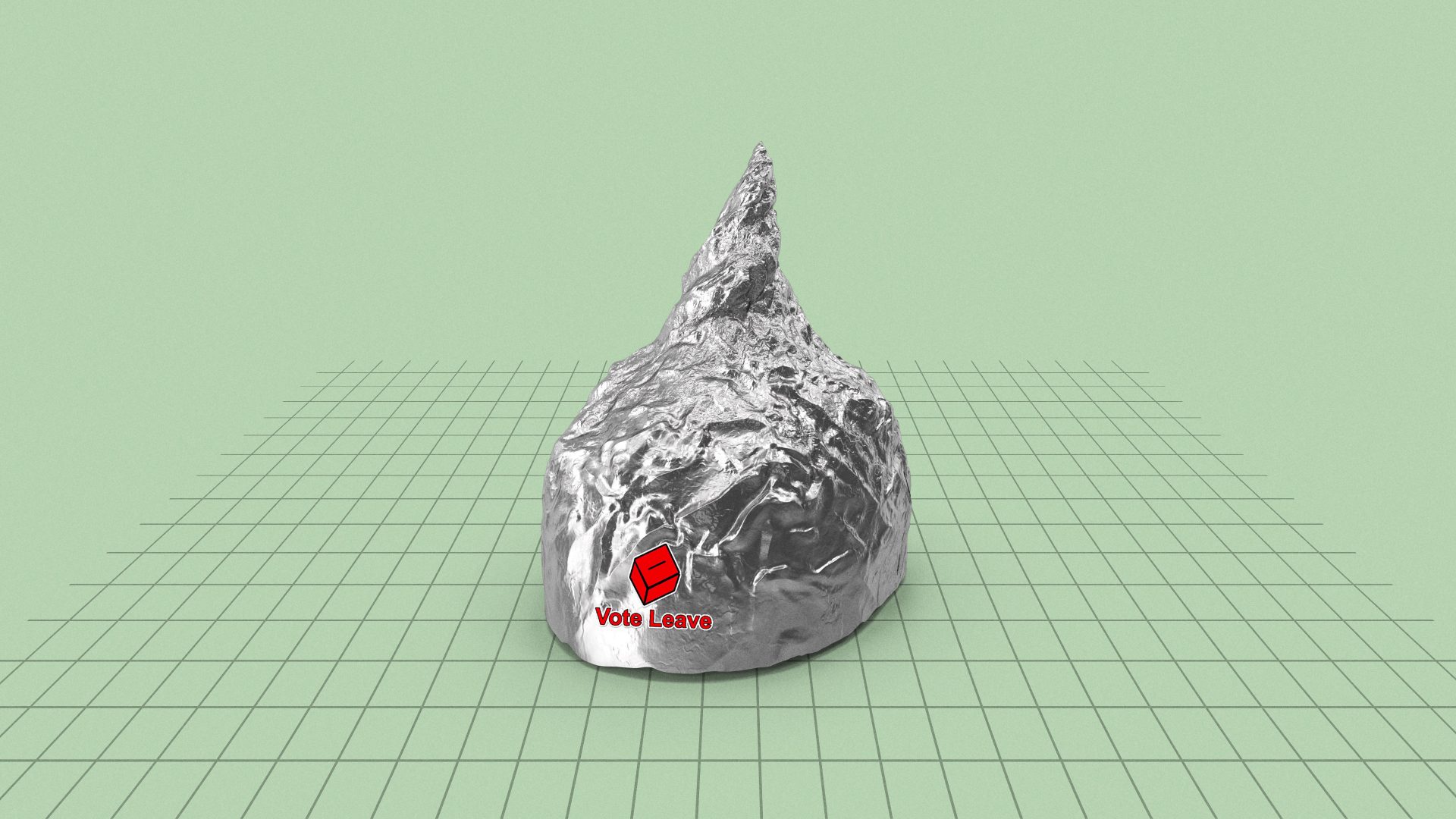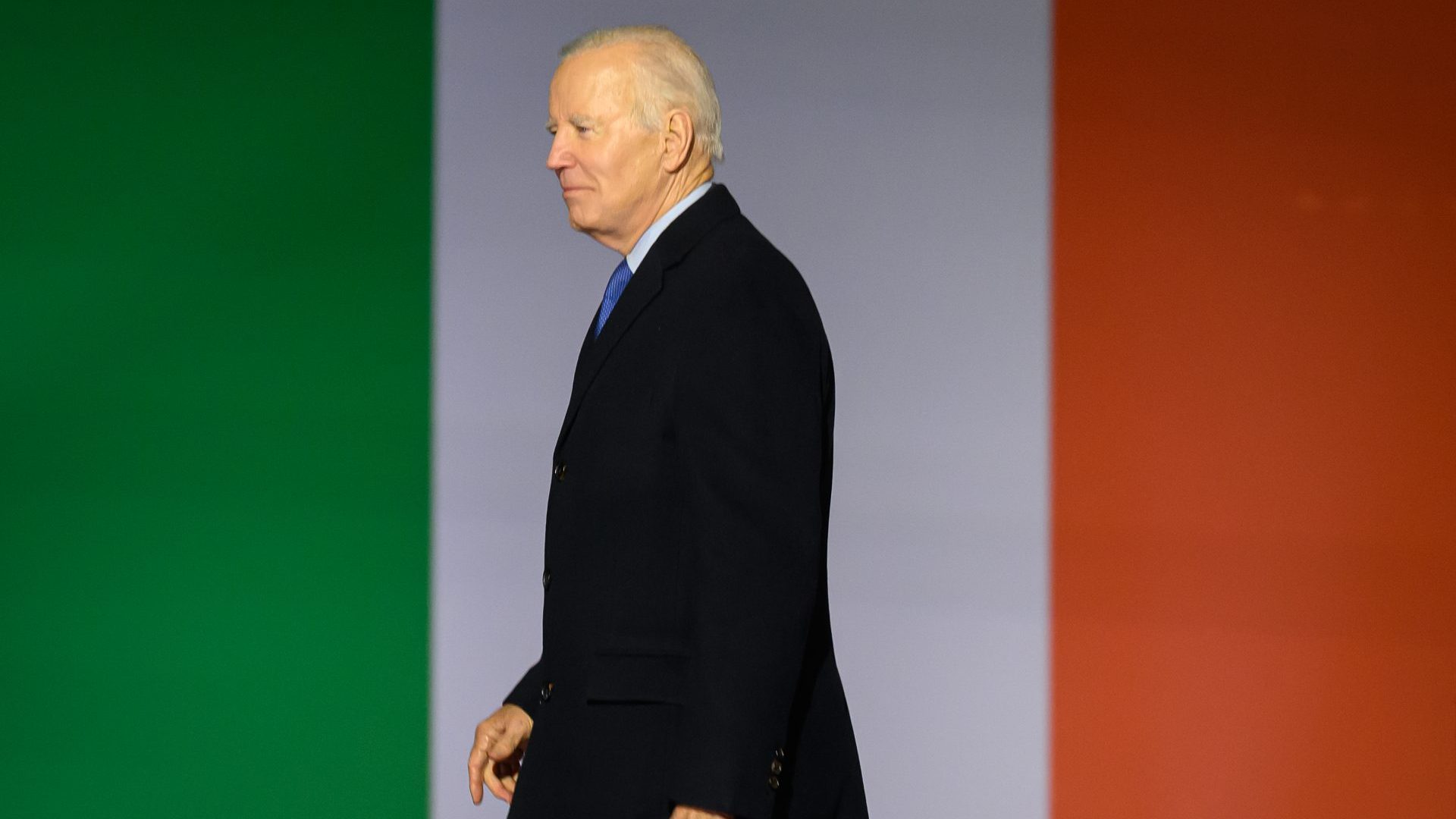The first thing to say about Prof Robert Tombs’s recent article in the Spectator, headlined “Remainers should be honest about the costs of Brexit”, is that professors of 19th-century French politics might want to stick to 19th-century French politics. No doubt when it comes to Charles X or Napoleon III, Tombs uses his decades of expertise to analyse matters in an incisive manner. When it comes to Brexit, not so much.
The professor sets out his stall by declaring: “Those opposed to leaving the European Union repeatedly accuse Brexit of being based on ignorance fed by lies. The ‘lie’ they invariably refer to is the £350m on the side of the Boris bus. In reality, it was the Remain campaign, and its interminable Rejoiner sequel, that was and is based on systematic distortions and gross misunderstandings.”
Are those sarky quote marks around “lie” suggesting the £350m figure was accurate? It was not. As made clear by the UK Statistics Authority, Full Fact and others, it was overstated by around £100m a week and was therefore a lie. No need for quote marks. But Tombs seems to be hinting that this was just one small porky – what’s a phantom £5.2bn a year between friends? – while the other side has consistently lied throughout.
On the matter of where these so-called Remain lies come from, Tombs says: “One might shrug one’s shoulders if the distortions came only from business lobbies, EU-funded think tanks, the subsidised European media and the like. But some of the most damaging originate within the British state and its associated bodies.”
We can discount the first sentence, as business lobbies simply represent their members’ expertise. I can’t think of any EU-funded think tanks in the UK, and the “subsidised European media” seems non-existent. The professor then suggests that a biased civil service is deliberately preparing inaccurate economic forecasts intended to make Brexit look bad, which the poor government then has to swallow. His “evidence” for this is that “the ardent Remainer Lord Adonis said that the 2016 vote caused ‘a nervous breakdown’ in Whitehall. Subsequent comments, articles and books by senior officials amply confirm this impression.” It’s a bit of a jump, isn’t it, to suggest this somehow proves the existence of a dastardly pro-EU plot at the heart of the civil service? This is tinfoil hat stuff.
The professor then explains how Britain has, in fact, made a huge success of Brexit by signing new trade deals and joining the CPTPP, a trade agreement made up mostly of nations on the Pacific rim. Again, Tombs complains about “Remainer propagandists” who like nothing better than using “official figures” and “the government’s own figures” to suggest things aren’t working.
It seems that, in Tombsland, if figures don’t show that Brexit is a triumph, they must be the work of a dark conspiracy that runs so deep that “supposedly pro-Brexit ministers have been deplorably reluctant to disavow misleading statistics”. The professor does not consider the possibility that the statistics could in fact be accurate.
It is almost a relief when Tombs moves on to what, in his view, the world’s independent financial experts have got so very, very wrong. He starts, fairly enough, with the panicky Treasury forecast that George Osborne pushed out just before the referendum, although its prediction of a 3.6% loss of GDP seems to have stood the test of time. Then there is the uncharacteristically wild claim made last year by former Bank of England governor Mark Carney that Germany has grown 20% richer than the UK since Brexit. Many Remainers queried these figures at the time.
But the professor’s attacks on what he calls “dodgy figures – in origin probably misunderstandings of questionable estimates issued by the Office for Budget Responsibility and the Department for International Trade” make no sense at all. Their analysis of a 4% hit to GDP from Brexit and a 0.08% gain from joining the CPTPP have been examined under the microscope of academic inquiry. Yet an expert on 19th-century French politics deems them a “guesstimate”, “flawed”, and based on “mistaken assumptions”.
Tombs also claims that the same economic model both “overstates” the costs of Brexit and “understates” the benefits of joining the CPTPP. He cannot have it both ways.
Like all good authors, Tombs saves the best for last by claiming that membership of the EU Single Market was never worth much. He quotes a 2014 report from what he calls a German “pro-EU think tank”, Bertelsmann Stiftung, and deduces that membership of the Single Market meant the average Brit gained just “€10 per year each – not quite enough for a month’s subscription to the New European”.
He seems to have missed the 2019 report from the very same Bertelsmann Stiftung, which says: “(Brexit) is likely to exhibit a significant impact on the UK economy… the UK alone would incur per capita income losses of almost 900 euros annually in case of a hard-Brexit scenario. On aggregate, the UK would see income losses of about €57bn annually – more than all other EU countries combined.” Which would pay for an awful lot of New European subscriptions.
Thankfully, we did not have the hardest Brexit possible, so that figure (the equivalent would be £50bn a year) came down a bit – which makes the £40bn annually that John Springford, deputy director at the Centre for European Reform, calculates is the ongoing Brexit deficit feel about right.
So is Bertelsmann Stiftung to be trusted or not? We shall never know. Nor will we ever know why Tombs has decided that figures for lost goods exports to the EU, which show that we are “only” losing £5-8bn a year, are the total cost of Brexit when they plainly are not. He even calculates that because this is slightly more than the annual cost of EU membership, we have made a net gain.
In fact, we are losing £40bn a year, so the cost of leaving is four to five times higher than the cost of membership. And that is only if you count the costs of leaving the Single Market, just one small part of the complete EU, which brought us many other benefits.
The prof ends with a heartfelt plea: “A sensible discussion of future trade policy would demand dispassionate analysis, not the repeated use of dodgy economic dossiers by the spin-doctors of Rejoin.” If only Tombs had stopped at ‘dossiers’, it would have been the most accurate sentence in his entire column.




